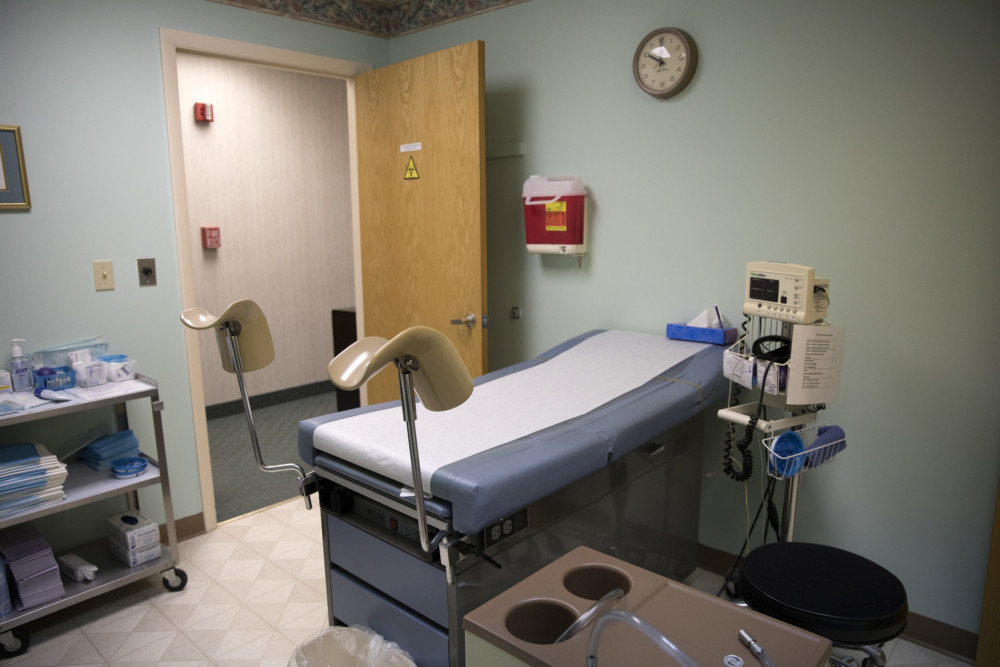By Angie Leventis Lourgos
Chicago Tribune
WWR Article Summary (tl;dr) Advocates on both sides of the abortion debate speculate that tighter regulations in other Midwest states could be sending more women to Illinois, which is considered one of the less-restrictive states in the region.
CHICAGO
When Alison Dreith learned of her unplanned pregnancy, the St. Louis resident said she chose to travel to Illinois to have an abortion in 2016.
She is the executive director of NARAL Pro-Choice Missouri and lived closer to a Planned Parenthood clinic in St. Louis where she used to work and knew some of the staff. But Dreith said Missouri’s 72-hour waiting period and other regulations made terminating a pregnancy far more burdensome in her state.
“I knew Missouri’s laws,” she said. “I never even thought twice about making the decision to go to Illinois.”
More women appear to be traveling from out of state to have an abortion in Illinois even as the total number of terminated pregnancies statewide decreased, according to the most recent figures from the Illinois Department of Public Health.
Dreith is among the 4,543 women who crossed the state border to terminate a pregnancy in 2016, an increase from the 3,210 abortions provided to out-of-state women reported in the previous year, based on a state report released in December. Overall, abortions in Illinois dropped from 39,856 in 2015 to 38,382 in 2016.
Since 2010, about 3,000 women a year have come here from out of state to have an abortion. Because of confidentiality laws, the data aren’t broken down by home state, nor do they explain why women are traveling for the procedure.
In a relatively large number of cases, 1,176 in 2016 and 2,148 in 2015, it’s unclear whether the patient was from in state or out of state because that was marked unknown.
But advocates on both sides of the abortion debate speculate that tighter regulations in other Midwest states could be sending more women to Illinois, which is considered one of the less-restrictive states in the region.
Emily Troscinski, executive director of Illinois Right to Life, said she believes more permissive laws are detrimental to women and the unborn.
“Illinois has become a dumping ground for other states with our flimsy abortion laws and politicians’ flippant attitude toward providing women with resources on all their options,” she said.
She attributed the overall drop in abortions to more young people identifying as “pro-life,” as well as resources that provide support to women who have unplanned pregnancies and choose to carry to term.
But Troscinski fears the overall number of abortions in Illinois will rise following a controversial state law passed last year expanding taxpayer-subsidized abortions to women covered by Medicaid and state employee insurance.
“For or against abortion, purposefully increasing the number of abortions and forcing those who oppose abortion to pay for the increase is appalling,” she said.
Those who favor that legislation say it ensures an equal right to medical care regardless of income.
As Illinois is expanding abortion access, many neighboring states are attempting to pass more restrictions.
“Illinois is surrounded by states with restrictive barriers that make it very difficult for patients to get the care they need,” said Planned Parenthood of Illinois spokeswoman Julie Lynn.
In Missouri, only one clinic provided abortions in the state in recent years until late 2017 because of laws requiring providers to have hospital admitting privileges and requiring clinics to meet the same standards as surgical centers. Those mandates were struck down by the courts in April and two more clinics in Missouri have since begun providing abortions.
But a new Missouri law now stipulates that only the physician performing the abortion can provide state-mandated counseling 72 hours prior. The measure, which passed over the summer, has been criticized as an unnecessary burden by reproductive rights supporters.
In Indiana, a 2016 law requiring an ultrasound at least 18 hours prior to an abortion was blocked by a federal judge last year. The state attorney general has appealed the decision. The law would also ban abortions for fetal genetic abnormalities like Down syndrome and require the identities of abortion providers be made public.
More recently in Iowa, a bill moving through the legislature would prohibit the procedure after the detection of a fetal heartbeat except in the case of a medical emergency, potentially banning nearly all abortions.
The state enacted a 72-hour waiting period as well as a ban on the procedure after 20 weeks of gestation in May, though the Iowa state Supreme Court temporarily halted to the waiting period portion of that law.
Last year, the Iowa-based Planned Parenthood of the Heartland also closed four Iowa clinics, citing state legislation that blocked public family planning services funding to abortion providers. One clinic in the Quad Cities on the Illinois border closed in December.
Planned Parenthood of the Heartland spokeswoman Becca Lee called these measures “extreme.”
“If lawmakers really want to decrease the need for abortion, they ought to work with family planning experts, like Planned Parenthood, to increase access to birth control,” she said.
Lynn, of Planned Parenthood of Illinois, attributed the overall decrease in abortions to women getting better access to information about birth control. Following the 2016 presidential election, she said Planned Parenthood of Illinois saw a 460 percent increase in patients seeking long-acting reversible contraception, such as IUDs and contraceptive implants.
Many of these women acted, she said, “because they were unsure of what the future for reproductive health care would be under the Trump-Pence administration.”














































































































































































































































































































































































